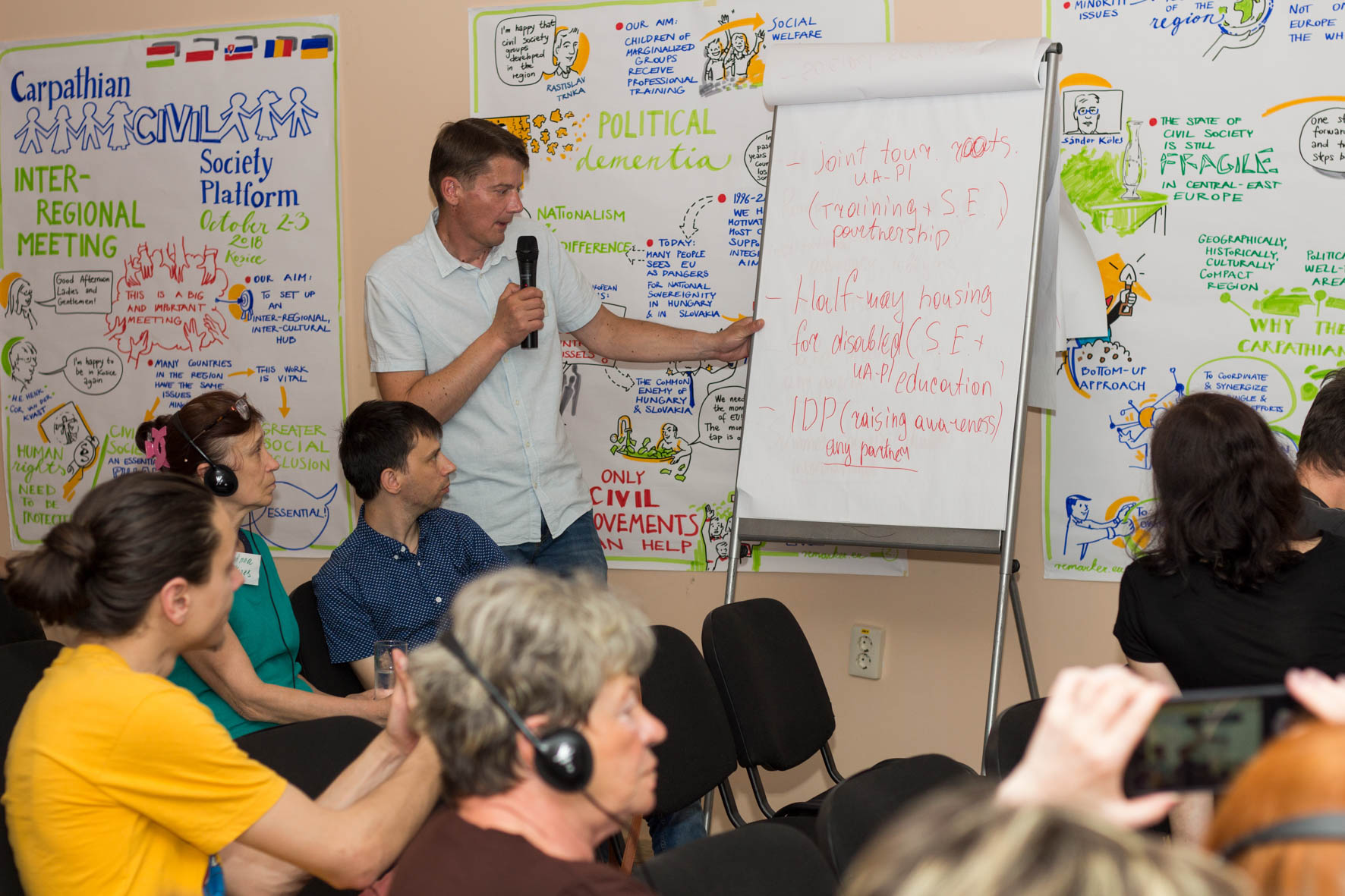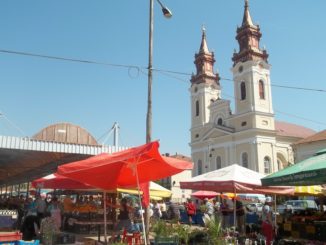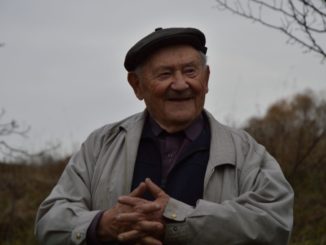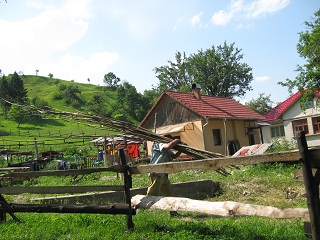
By Sándor Köles
The Carpathian Civil Society Platform is gathering energy for change in the borderlands that connect Ukraine, Romania, Hungary, Slovakia and Poland. These remote mountainous areas have similar characteristics and face similar challenges, such as increasing poverty and social exclusion.
With war moving closer to Western Ukraine, the platform’s work to connect civil society actors in the Carpathian mountains has taken on renewed significance. Report by Sándor Köles, Chair of Carpathian Foundation-Hungary.
War is moving closer to Western Ukraine. The south-eastern gateway to the Carpathians – Ivano-Frankivsk (180 km from the Romanian border) and Lviv (70 km from the Polish border) – has been bombed by Russian forces. It is impossible to know when a stray missile or drone will hit one of the NATO member countries with unforeseeable consequences.
Throughout history, the Carpathian mountains have been a natural refuge for people fleeing war and conflict. So it is now. Hundreds of thousands of refugees are arriving in the still relatively safe western part of Ukraine, which is also the route to the West (the EU) along the East-West border, which is the dividing line between EU and non-EU countries. This places a huge burden on border regions in Slovakia, Poland, Romania, and Hungary. So far, nearly 3 million refugees have arrived who need to be cared for, and their number grows daily. However, the communities and hundreds of civil society organizations in the Carpathians are spontaneously showing solidarity with them; not only words, but taking action.
Carpathian Emergency Fund for Ukraine
To support local communities and civil society organisations that are on the frontlines since the beginning of the war, the Carpathian Foundation, which works in the bordering areas of the Carpathian region, has launched the Carpathian Emergency Fund for Ukraine. Its goal is to provide financial support to local civil society organisations (CSOs) in the border region that are helping the most vulnerable and most underserved groups of refugees, such as Roma people who are coming from mainly rural areas, and children. The Fund wishes to support local schools that accept refugee children and hire Ukrainian-speaking teachers for them.
The refugees are not a faceless mass. Each person has their own sad or even tragic story, and the local people understand this. This contributes to deepening solidarity at the local, regional, and perhaps at the European level and strengthening the ability to self-organise. This should remain with us when the war ends; it gives us the energy and tools to act in the post-war situation.
Let’s hope that soon the war will be over and the recuperation and regeneration can start.
Our common ground for cooperation
Lots of effort is needed to climb the mountain of regional solidarity, social cohesion and democracy in the Carpathian borderlands of Hungary, Slovakia, Poland, Ukraine, and Romania.
Driven by the common vision of 135 CSOs to foster a vibrant, pluralistic, and rights-based civil society in these remote mountainous areas, the Carpathian Civil Society Platform and Hub offers a framework for cooperation between grassroots CSOs working with local communities and vulnerable groups.
The Platform is a cross-border organisation attached to the geographically, historically, culturally and sociologically contiguous territory of the Carpathians, which is our common ground for cooperation and actions.
Obstacles to transnational cooperation include language issues; lack of funding for transnational cooperation (especially for CSOs which operate in mountainous areas, and are not so well prepared to absorb huge EU funds like the Interreg programs); lack of knowledge and capacities to cooperate across borders; weak project design and project management skills.
Our main aim is to coordinate and synergise the often isolated efforts of CSOs, and amplify the effect of their activity at local, sub-regional, and Carpathian levels. We generate, disseminate, and mainstream innovative solutions to environmental and socio-economic problems, in order to free up their innovation capacity to better serve their constituencies and articulate the needs of mountain communities.
The Carpathian Civil Society Platform was created in 2017 by Carpathian Foundation-Hungary and its partners from the five Carpathian countries, after 18 months of preparatory work with CSOs. The initiative is multi-level: local, sub-regional, inter-regional, national, and EU levels.
Romania | A modern dichotomy between biodiversity and farming
Mostly nice words
Disharmony, and sometimes conflicts between the local, sub-regional, inter-regional, national, and EU levels, are not conducive to creating an enabling environment for civil society actors.
There is a contradiction, for example, between EU policy (mostly nice words) on the importance of civil society, and national policies, which in practice undermine and, in some cases, intimidate civil society actors. This leads to the shrinking space of civil society, induces apathy for public affairs, dramatically reduces social cohesion and solidarity, and deepens mutual mistrust between state and societies.
In the case of the Carpathians, there is a lack of systemic solutions for integrating the development potential of the borderlands, including the lack of integrated strategies based on unified resources. This is linked to a low level of community-driven development solutions and a low level of inter-sectoral cooperation (public/private/non-governmental entities). This can be considered to be one of the basic problems in implementing the vision of the socio-economic development of the Carpathians. The other problem is the lack of cooperation and joint strategy between national governments of Hungary, Slovakia, Poland, Romania and Ukraine.
By Sándor Köles, Chair of Carpathian Foundation-Hungary, a co-founder of the Carpathian Civil Society Platform
A version of this story appears in Rural Europe Takes Action: No more business as usual, a forthcoming book published by Forum Synergies and ARC2020.
More on Ukraine
War in Ukraine and World Food – What options does the international community have?
Where Soya has Scale – Ukraine, Big Ag and Land Concentration
More on Hungary
More on Poland
Poland | The Biosecurity Battle with African Swine Fever on Farms
More on Romania
Romania | A modern dichotomy between biodiversity and farming
Digitization in Romanian Agriculture – Three Appropriate Solutions
Letter From The Farm | The Resilience and Privilege of a Rural Homestead




